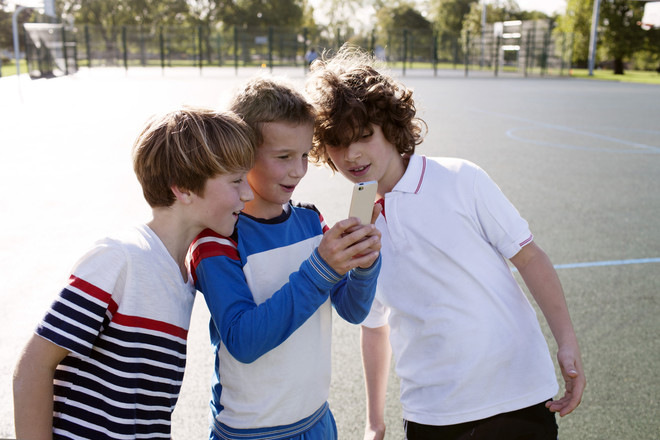"Blue Whale", perverts of all stripes, scammers andothers are not very good people - yes, in social networks you can stumble upon anyone and anything. Therefore, many mothers and fathers are intuitively opposed to the child sitting for days on end in a circle of virtual acquaintances. Intuition does not fail them: social networks can indeed be fraught with danger. And not only for the child, but for the whole family. We tell what should not appear on the pages of your children never for anything - for their own safety.
1. Photos with geotag
You know very well that smartphones registercoordinates of where the photo was taken in the metadata. Not just anyone can decipher them, but a person who is sufficiently savvy in digital technologies. There are many of them now. Therefore, you should either turn off the location function on your phone, or ask your child not to share photos that indicate that the family is not at home. Robbers, welcome. Photo: Getty Images
Photo: Getty Images
2. Photos in the genre of “Home Alone”
Is your child home alone?Let him brag about it after everyone returns home. Everyone remembers the movie about the adventures of Macaulay Culkin's hero? Unfortunately, such situations also occur in reality. And they don't always end as optimistically as in a Hollywood comedy.
3. Letters
Yes, yes, ordinary paper letters.After all, they come in envelopes that — ta-da! — have your home address on them. Often, the recipient's contact information is also on the letterhead itself. A shocking bill? A tax bill that arrived by mistake? Don't share them. Or, at worst, blur out the personal information in Photoshop. You don't want to invite everyone who wants to visit you, do you? So explain that to your child. Photo: Getty Images
Photo: Getty Images
4. Family information
Parents' names, places of work, schedule -No one needs to know all this either. Why would anyone need information that Seryozha's dad works at Gazprom and his mom at a bank? And if the child really can't wait to tell the world that his dad is a big boss, then ask him to publish such information not for everyone, but for friends, "under lock and key". Or the account should be made closed, and people can subscribe to it only after you personally check it. The main thing here is to convey to the child the idea that the Internet is not such a friendly place as it may seem at first glance.
5. Revelations about personal success
Be proud of your successes and achievements –Naturally. Of course, you want to brag to everyone about what a great herbarium you've collected this fall. Or what a collection of Kinder Surprise figurines you've collected. Well, the first is safe. But the second is not. Any information about interests, favorite artists, hobbies can be used to harm: knowing the child's weaknesses, a person with not very pure thoughts can easily gain his trust. The same applies to "cries from the heart" - a teenager's revelations that everything is bad for him attract manipulators.
6. Anything they may regret
It's okay to make mistakes.However, it is important to remember that the Internet not only does not forgive mistakes, it remembers them all. And this is much more frightening. Explain to your child that his page is one resume as long as his social life. By the way, many employers now do not even consider resumes without a link to a social network profile. So if a person has made an idiot of himself somewhere, this may not have the most pleasant effect on his career. Therefore, fewer photos from fun parties. And as for photos like “my friends made fun of me while I was sleeping drunk,” it is generally better to leave them for personal use only. Read on:









